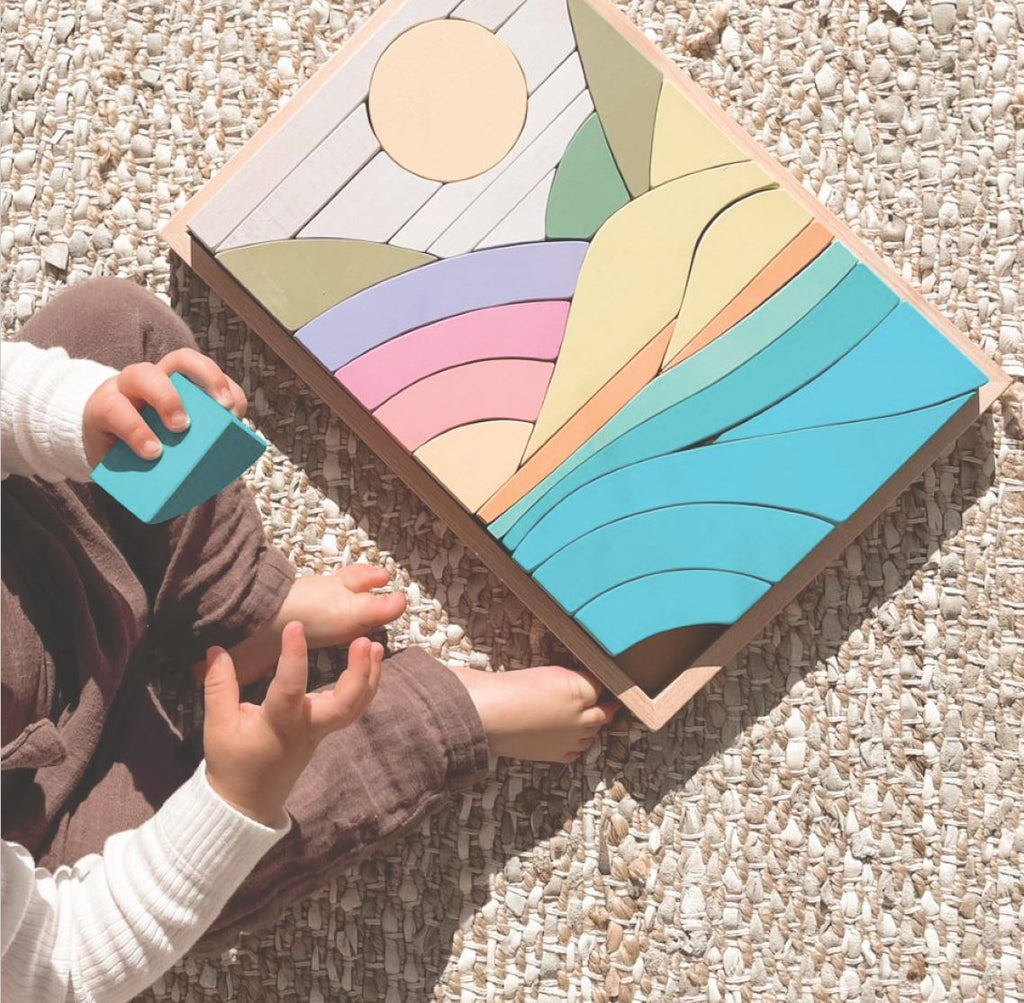The Importance of Learning Through Play
Toddlerhood is a crucial stage of a child's development, and play is a fundamental part of this journey. During this period, children are learning and discovering the world around them, and it is essential for parents and caregivers to provide an environment that fosters their development and encourages their natural curiosity. One of the most significant ways to support their growth is through play. In this blog, we will discuss the importance of toddler development through play and why it is essential to create a caring and nurturing environment that supports this process.
First and foremost, play is a child's work. Through play, toddlers explore, experiment, and learn about the world around them. They develop important skills such as problem-solving, social interaction, and language. During play, children are also learning about their own emotions and how to express them in a healthy way. This is why play is such a critical component of a child's development and why it is so important to provide opportunities for them to engage in it.

In a caring and nurturing environment, play can become an even more meaningful and valuable experience for toddlers. When children feel safe, secure, and loved, they are more likely to engage in play that is both imaginative and imaginative. This type of play encourages them to explore their creativity and imagination and helps to build their self-confidence and self-esteem. It also gives them the opportunity to express themselves in a way that is unique to them.
In a caring environment, children are also more likely to engage in social play. This type of play is essential for developing important social skills such as cooperation, communication, and empathy. When children play together, they learn how to work together, share, and resolve conflicts. They also learn how to express their feelings in a healthy way and how to respond to the feelings of others. This type of play helps to lay the foundation for healthy relationships in the future.
Another important aspect of play is that it helps children to develop their physical skills. Through play, children are able to develop coordination, balance, and strength. They also have the opportunity to practice gross motor skills such as running, jumping, and climbing. These physical skills are essential for children's overall development and help to lay the foundation for more complex physical activities in the future.

In addition to the physical and social benefits of play, play also helps to develop children's cognitive skills. Through play, children learn about cause and effect, categorization, and spatial relationships. They also develop their memory and attention skills. This type of play is essential for children's overall development and helps to lay the foundation for more complex cognitive activities in the future.
It is important to remember that play is not just about having fun; it is about learning and growing. Children learn through play, and it is essential for parents and caregivers to provide opportunities for them to engage in play that is both meaningful and educational. This can be done through the provision of age-appropriate toys and materials, as well as through the creation of a safe and nurturing environment that supports play and learning.
In conclusion, toddler development through play is essential for children's overall growth and well-being. Through play, children are able to explore, experiment, and learn about the world around them. They develop important skills such as problem-solving, social interaction, language, and physical coordination. When children feel safe, secure, and loved, they are more likely to engage in play that is both imaginative and educational. As parents and caregivers, it is our responsibility to create a caring and nurturing environment that supports this process and helps children to grow and thrive.
